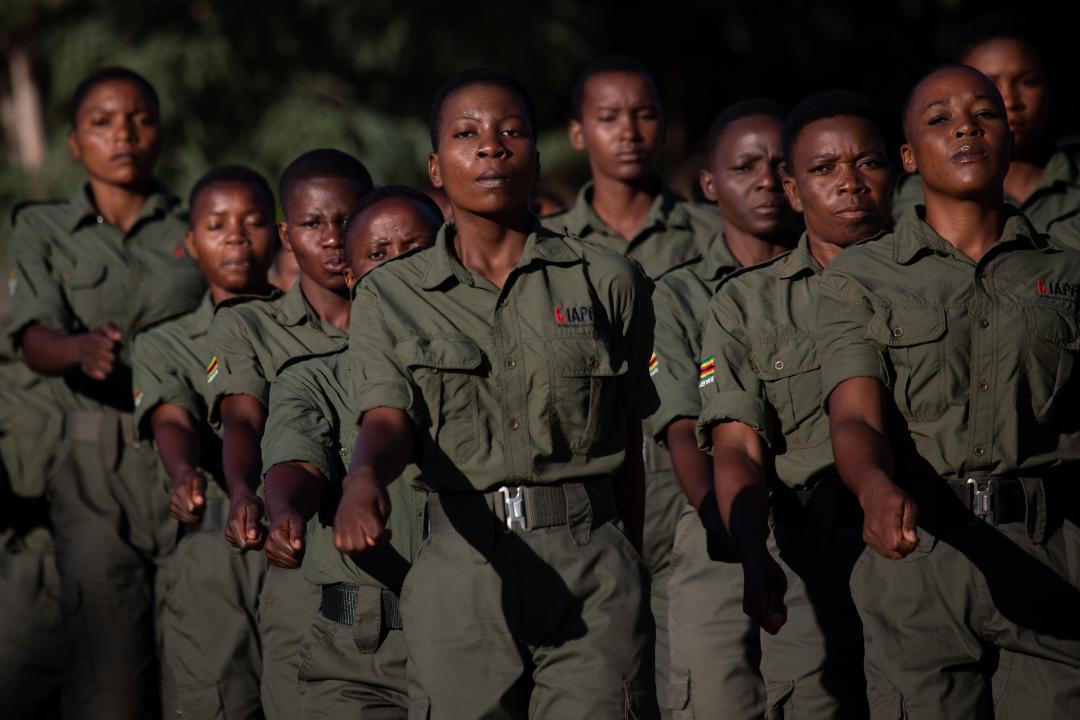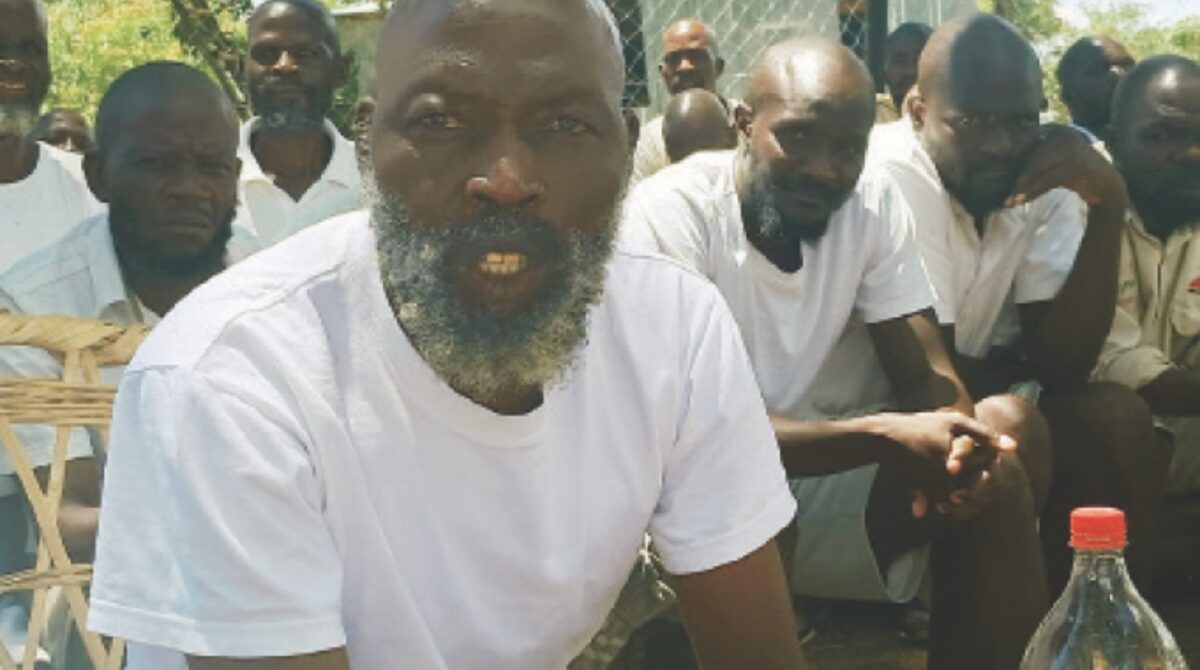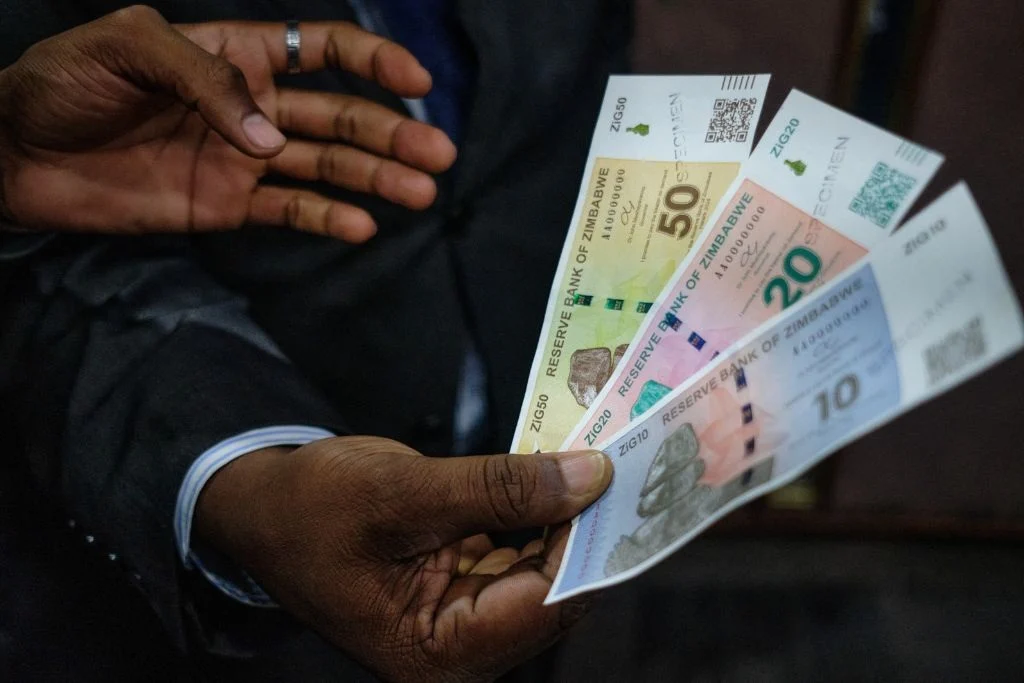HURUNGWE – Zimbabwe’s all-female anti-poaching unit, Akashinga (The Brave Ones) continues to excel in its wildlife preservation operations in the Zambezi valley where it is operating.
The team has formed progressive synergies with local communities, agencies and authorities, bettering the livelihoods of local communities.
Recently, the International Anti-Poaching Foundation’s (IAPF) affiliated unit celebrated 1,303 arrests in 724 operations in its valiant effort to conserve wildlife and mitigate poaching in Nyamakate, Hurungwe District, Mashonaland West Province.
The unit, last year alone, recovered 24 pangolins, 118 elephant tusks and 1 rhino horn, as well as over 1,500 kg of illegally caught fish.
Once viewed with derision by some locals who found everything amiss with a group of women tackling poachers, the unit had done a lot to convince critics through some community initiatives tailored to uplift locals’ lives through education, health and nutrition, infrastructure development and employment.
A recent joint project among Hurungwe Rural District Council, MoveMe Abundant Village and Akashinga with support from the Australian Government provided essential access to clean water through the installation of solar boreholes at Nyamakate centre and Kilo village in Chundu.
Nyamakate Clinic was also gifted with solar power and upgrades to Early Childhood Development (ECD) centres in nearby Golf and Jinami villages are in progress, thanks to the Akashinga’s progressive community based initiatives.
The success of the projects has complemented women’s efforts to shape narratives that village women can thrive in wildlife conservation and also take the lead in community development projects defying the traditional norms.
One of the rangers of the elite unit, Sergeant Major Nyaradzo Hoto, has made tremendous strides in wildlife conservation and was awarded an International Union for Conservation of Nature’s (IUCN) International Ranger of the Year Award in 2022.
In an interview, the graduate of the first pilot Akashinga training programme back in 2017, she spoke of how she was honoured with the award and how being a member of Akashinga has positively impacted her life.
“I feel proud and honoured to be recognised internationally,” she said.
“That among all the women I was honoured with such a prestigious award and if I can mention in all the winners, I was the only female winner for the award.
“My hope is that the fact that I won the award does not end with me, but must extend to my colleagues and all the women who work in wildlife conservation centres around the borders.
“Before I joined Akashinga, I could not send my daughter, who is now 11, to school but now with what I earn from Akashinga, I am able to send her to a better school.
“My father passed away in 2015 and mother could not afford to send me and three of my younger siblings to school.
“Although I wished to go to University when I was younger, Akashinga has afforded me the opportunity and I am also able to pay fees for my siblings school fees,” she said.
The ranger said Akashinga’s wildlife conservation efforts and community development projects were inspiring the younger generation of girls to join the job which comes with a lot of career opportunities.
Margaret Darawanda, another group member, also said being a ranger has opened opportunities for her and shifted her mindset to break cultural patriarchal norms.
“I joined Akashinga in 2017 after an opportunity arose in my village, Nyamakate.
“The announcement came at an ideal time when I had finished school and had nothing else to do. So, I gave it a shot.
“Ever since I joined, I have learnt the importance of wildlife preservation and how it benefits our local ecosystems.
“We got empowered as women to break the patriarchal beliefs that view men as the only sex that can take up the job of being rangers,” Darawanda said.
Speaking at Friday’s parade, local paramount chief Chundu commended Akashinga for their partnership and sustained involvement in the community.
“Thanks to this initiative. The girl child can now have access to employment opportunities and can also play a vital role in the protection of our environment,” he said.
Throughout the remainder of the month, Akashinga will continue to work with the community to complete other ongoing projects, which are at 75 percent completion.
Damien Mander, the CEO and Founder of Akashinga, said the parade was a moment to reflect how the (IAPF) project which birthed Akashinga has made tremendous strides in wildlife conservation and community development.
“The culmination of not only 14 years of work but 14 years of lessons, and I think the most valuable lesson that we learn as conservationists is that conservation is not a conservation issue, it’s a social issue, and when we have social impact we have conservation outcomes.
“This is what Akashinga is about, it’s about having social impact through community upliftment, through partnering with the local communities and local agencies so we can have this impact through community projects, education, healthcare, infrastructure development, job creation and of course central to our community development is the empowerment of women that’s what Akashinga is about.
“It’s not only the women that are out there on the frontlines as the tip of the spear but is about the whole team that is behind that machine that is behind that team, that makes that team do its job out there risking their lives on a daily basis, not just on behalf of the international community but the natural resources we have as one beautiful backyard that we have be given a civilisation.
“As humanity, we have been destroying it and our future as a species is dependent on that willingness to preserve biodiversity.
“Today what I am most proud about is where this programme has come specifically over the last six years since we started, we started under a tree not far from here, on chalk board with 16 women and today this programme is growing across flour countries protecting over 9 million acres of African wilderness with a staff over 600 people,” Mander said.















